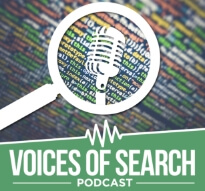·“We start with a kickoff where I ask a lot of questions not only about their SEO team but about their business and obviously what they are interested in for the next couple of years, what we can do to help them, the types of things they want to track. Its pretty much everything they do as it gives me a good baseline as to what their goals are, what the website is, how they are working on branded and non-branded content, products, everything for the website.” -Cassie
·“They will always come with strategy but with that, theres also a pain point they didnt really know they need to focus on, and they might need some reporting, they might not have the up-to-date keyword list they want to track and in general, they might not be able to understand or actively focus on every area of the website without missing something.” -Cassie
·“Lets say youre working with a company that has 4 or 5 different segments in their business. I want to make sure what they are putting into a project, whatever keyword research list theyre going from actively covers all of those and in turn also focuses, maybe one product in theirbusiness has 50% of their ROI, so lets maybe delegate more resources towards that group and focus on those things just so I can have it in the back of my mind and say, I know these are things that are going to bring ROI to this company and I know this is how theyre evaluating us for the next year.” -Cassie
·“I always start with the Who, What, Where, When, Why approach. So pretty much any website or any business, our goal as SEOs is to make sure that we can adequately give users what they are searching for.” -Cassie
·“I think this is an important point to reiterate as were talking through what the workflows are. Cassie, your approach seems to be a customer-centric approach. It goes beyond just the keyword analysis or the KPIs, its understanding that were using SEO as a marketing cha el.” -Ben
·“Establishing that baseline of where were at today vs. some of those keywords or topics that we want to be competitive in, do we have that list of keywords that we really want to target and gain more visibility in organic search. And then also, are we thinking aboutit from a competitive standpoint? Are we thinking about it with synonymous or semantically related terms? Is there an area that we can make it more comprehensive for that user so that we dont always have such a birds eye view into what were tracking and what our goals are.” -Cassie
·“Going through the keyword research, its very easy to look at a couple of head terms. Its really hard to try to evaluate rank and prioritize every possible keyword that could impact someone in an industry as large as MarTech.” -Ben
·So theres an anecdotal process that youre going through whether its eyeballing some Google search results or using some of the Google keyword trends, tools that you can figure out general themes of whats happening on the pages that you think are relevant for you.” -Ben
·“An enterprise tool will make the process quicker. Instead of me having to personally Google and analyze 40 different terms to see how those trends relate to each other, what types of longer sem keyword come of that, what type of SERP features come up from something like that. The enterprise will make all of that more streamlined. It gives a lot of insight for something that a person may only have one single idea for.” -Cassie
·“Im focused on branded and non-branded. Everybody needs a healthy amount of brand terms for those company but then on those unbranded terms, is really where a lot of folks are searching as well and that can be an investment opportunity.” -Cassie
·“We also need to understand the intent of the user. If Im a user searching something, is Google giving me information or is Google recognizing that maybe I want to make a purchase and is serving me a lot of transactional content.” -Cassie
·“I typically look at their website and see what are the important terms that are typically in our enterprise offer to see where they are all competitive already. I am also looking at them vs their competitors and see where they are missing the mark. Finally, I compile that into what makes the most sense for them to track not only in their SEO team but widely throughout their company.” -Cassie
·“To me when you go into the research phase, the first thing you need to do is to understand the organization. If youre an agency thats out there and youre working with your clients, if youre a consultant, or just working on your new brand, you have to get the lay of the land first. Understand who is the team that youre working with, I think the second step once you understand who the team is, is understanding measurement, the KPIs. How are you evaluating the performance of your business, and what are you optimizing for. The third thing is, understand who the customers are. How are we actually going to drive these results and who are the people that we are targeting with our marketing efforts, then you get into the keyword research and have all the context you need to be able to start thinking about what your strategy is.” -Ben








